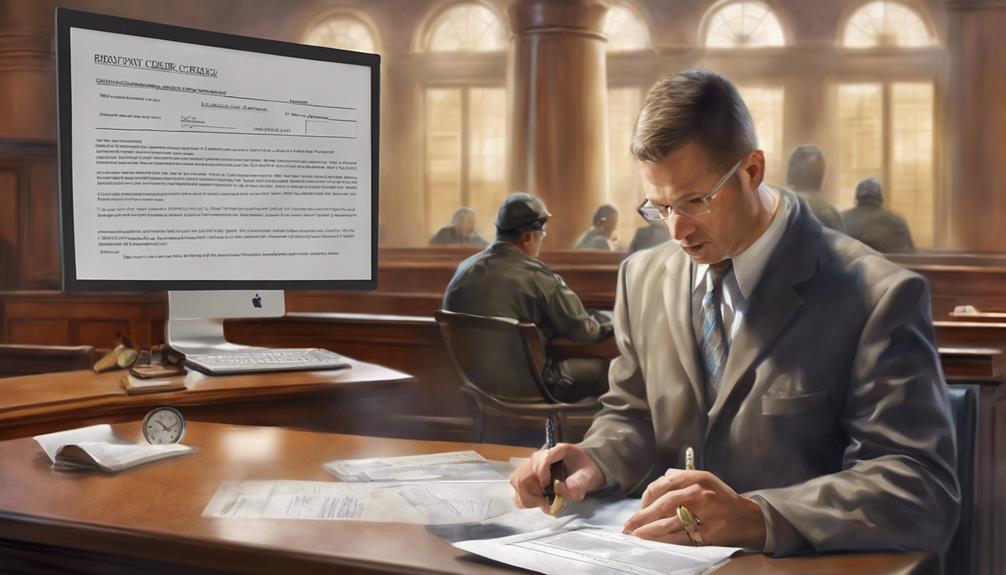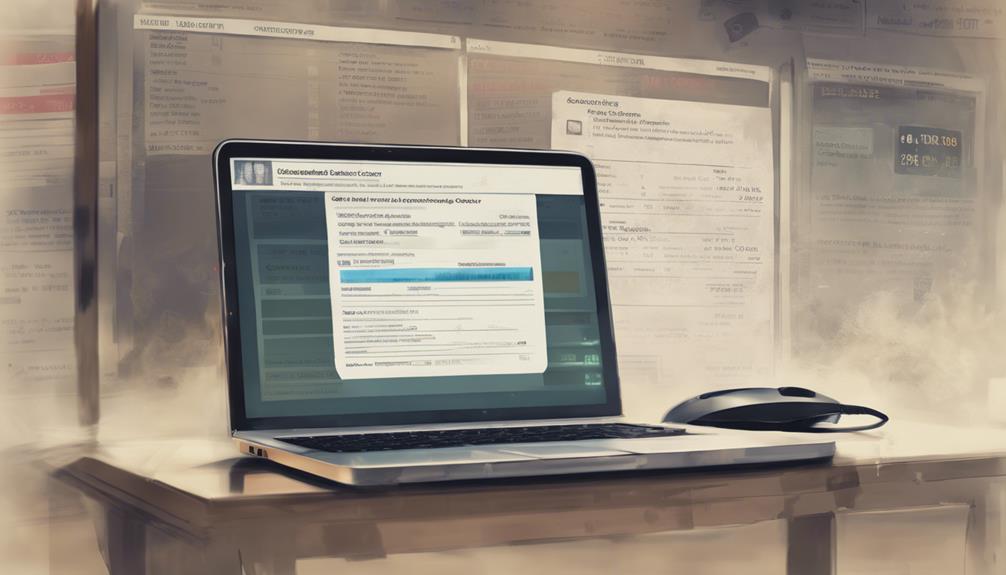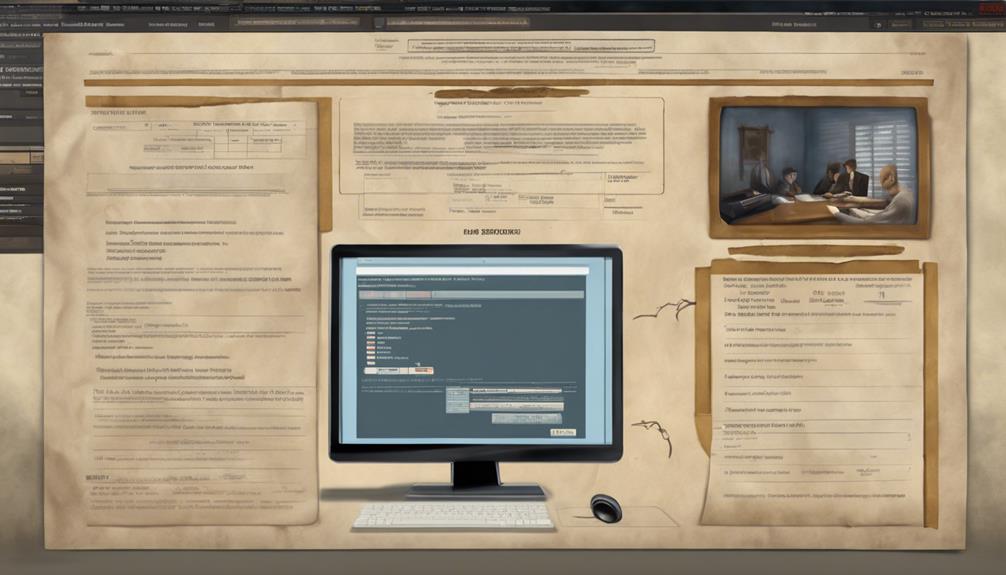College admissions background checks are becoming increasingly common as colleges aim to verify your information, promote fairness, and uphold their standards. They check your test scores, extracurricular claims, and other details to prevent misrepresentation and guarantee a level playing field. Being honest and accurate in your application is more important than ever. If you want to understand how these checks work and how to prepare, you’ll find helpful insights ahead.
Key Takeaways
- Many colleges now routinely verify applicant identities and academic records to ensure fairness and transparency.
- Background checks include confirming standardized test scores and extracurricular claims to prevent misrepresentation.
- Schools contact organizations or use online tools to validate claimed activities and leadership roles.
- Honest reporting is crucial, as background verification can uncover discrepancies, risking application denial or rescission.
- Applicants should prepare by maintaining accurate records and understanding the importance of transparency in admissions.

Have you ever wondered if colleges check your background before admitting you? It’s a question many students ask as the college application process becomes more scrutinized. While most applicants focus on grades, essays, and recommendations, institutions are increasingly turning to background checks to get a fuller picture of who you are. This shift isn’t just about verifying your identity; it’s about guaranteeing that applicants meet certain standards and align with the college’s values. One area that often catches students off guard is how colleges view standardized testing and extracurricular activities. These elements aren’t just about academic achievement—they also serve as indicators of your commitment, discipline, and overall character.
Standardized testing, such as the SAT or ACT, has long been a cornerstone of college admissions. But now, some schools are going a step further by verifying scores and test records to prevent fraud or misrepresentation. If you’ve ever exaggerated your scores or claimed participation in certain testing prep programs, be aware that colleges may cross-reference your claims with testing agencies. This background check aims to confirm that your scores are legitimate and that your application is honest. It’s not just about catching dishonesty; it’s about assuring a fair and transparent admissions process. If you’re applying to highly selective schools, expect a closer look into your standardized testing history.
Colleges verify SAT and ACT scores to ensure honesty and fairness in admissions.
Extracurricular activities also play a crucial role in the college admissions background check. Admissions officers want to see evidence of leadership, dedication, and passion outside the classroom. But they’re also increasingly verifying your involvement. For example, if you list a leadership role in a club or sport, the college might contact the organization to confirm your participation and role. Some institutions even use online tools and social media to verify what you’ve claimed about your activities. If you say you volunteered hundreds of hours at a local shelter, be prepared for them to ask for proof or references. Misrepresenting your involvement can not only damage your application but also lead to disqualification or rescinded offers if uncovered during background checks.
This growing trend toward background verification means you should be truthful about your achievements. Authenticity is more important than embellishment. Colleges want students who will contribute positively to their campus community, and honesty is a key part of that. While it might seem invasive, these checks are designed to create a level playing field and ensure that all applicants are evaluated fairly. So, as you prepare your application, keep your records accurate and transparent. The extra effort to be truthful now can save you from complications later, should your background be thoroughly reviewed. Additionally, understanding the importance of background verification can help you better prepare your application materials and avoid potential pitfalls.
Frequently Asked Questions
Are Background Checks Mandatory for All College Applicants?
You’re wondering if background checks are mandatory for all college applicants. While some schools may require them to guarantee admissions integrity, not all institutions do. Privacy concerns play a role in this debate, as applicants worry about personal information being shared. Ultimately, policies vary by college, so you should check each school’s requirements. Be prepared for the possibility that background checks could become more common as colleges aim to verify applicant backgrounds.
How Far Back Do Colleges Typically Review Applicants’ Histories?
Colleges usually review applicants’ histories based on their admissions criteria, often focusing on recent years, typically the last 5 to 7 years. They aim to assess character and integrity without infringing on your privacy excessively. While background checks are becoming more common, they balance thoroughness with respect for applicant privacy, ensuring they gather relevant information without overreach. Keep your records honest and up-to-date to meet these evolving standards.
Can Applicants Dispute or Appeal Findings in Background Checks?
You can usually dispute findings in background checks through the dispute procedures provided by the college or the screening agency. If you believe there’s an error, follow the appeal processes outlined in their policies, which often involve submitting documentation or evidence to support your case. Keep in mind, timely action is vital, so review the instructions carefully to guarantee your dispute or appeal is considered properly.
What Specific Background Information Is Most Commonly Checked?
You might think background checks only verify academic records, but they often focus on criminal history, employment records, and academic integrity. These checks aim to protect campus security and uphold the institution’s reputation. By scrutinizing these details, colleges guarantee safe, trustworthy environments for students and preserve alumni reputation. It’s essential to understand what specific information is checked, as it directly impacts your application process and future opportunities.
Do Background Checks Impact Financial Aid Eligibility?
You might wonder if background check influence affects your financial aid impact. While most colleges don’t directly link background checks to financial aid eligibility, discrepancies or issues uncovered during the process could raise concerns about your application’s integrity. It’s essential to provide accurate information, as any inconsistencies might indirectly affect your chances of receiving aid. Staying honest and transparent helps make sure your background check won’t negatively influence your financial aid prospects.
Conclusion
As the gates to college swing open wider, background checks become the new gatekeepers, casting shadows of doubt and trust alike. You stand at a crossroads, where honesty is your strongest compass amidst the fog of scrutiny. Embrace transparency like a lighthouse guiding your ship through turbulent waters. In this new normal, your integrity isn’t just a virtue—it’s the armor that will carry you safely into your future, shining brighter than any check could ever reveal.









